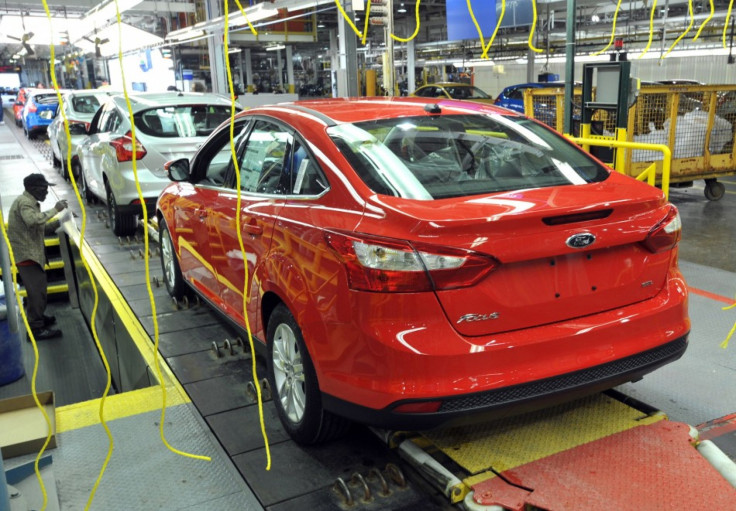Detroit Auto Show: Carmakers Faring Better But Challenges Remain
Analysis

As the annual showcase of the world's newest cars, trucks and SUVs nears with the North American International Auto Show 2012 in Detroit, its clear that the automakers have much more to showcase than in recent years. And we're not just talking about products.
Among the world's biggest automakers, the sick have healed.
Most have recovered nicely from the financial crisis when auto sales plummeted along with profits, sending some including GM and Chrysler to bankruptcy, and others close. But while automakers from Ford to Nissan and Volkswagen continue to make headway with U.S. marketshare and General Motors pushes along profitably after bankruptcy, the reality is that the future remains quite a challenge.
America's big three held 47 percent of the domestic market in 2011, a two percent increase over 2011 -- one big reason Chrysler, GM and Ford have enjoyed more success. Toyota helped out with that, faced with recalls that hurt the company into 2011 and production issues with the Japan earthquake and tsunami. The earthquake also hurt Japan automakers Honda and Nissan, of course.
Another reason domestic automakers fared better was the return of sub-prime car loans which soaked up much of the market's proverbial low-hanging fruit. When financing tightened in 2008 during the Great Recession new car sales slowed. Of course. Then there was the federal government's Cash for Clunkers program that boosted used car prices. The combination of more market demand for new cars amid higher-priced used cars and the availability of sub-prime new car loans created stronger sales in 2011.
But the thing about low hanging fruit is that once it's picked, one has to move higher up the tree to get the goods. Such as the case for automakers in 2012, and a tone that will likely ring out at this year's Detroit Auto Show. That's one place they push products hard each year, but the ante in a competitive market only gets pushed higher.
It's not that sub-prime lending in autos has the same risks that sub-prime lending for homes did. Cars are easier to repossess and car owners are less likely to default anyway than homeowners. The issue, however, comes with the fact that demand has likely eased a bit from 2011 once that pent-up energy was tapped. Also, the competition gets stiffer with each and every passing day.
Volkswagen, for instance, has opened its first North American plant and has plans of using the U.S. market to push the automaker to become the world's largest. There's room for Volkswagen, since the American market should continue to grow in 2012, it's just that the opportunity will get harder to find.
As one analyst said, the U.S. market isn't the cash cow it once was, but it's still a mature and profitable market, as opposed to more volatile emerging markets, or stagnant ones in Europe, said Rebecca Lindland, an analyst with the consulting firm IHS Automotive, according to The New York Times.
Leasing continues on the rise, but some think it may have peaked as well after two years of solid increases.
So it's hardly doom and gloom for the Big Three and the global automotive industry. Not even close. They ended 2011 as strong as could reasonably be expected, and the ground the automakers stand on today is vastly more firm than it was several years ago. They are leaner, more efficient, and have better products arguably than ever before -- as the Detroit Auto Show will reveal.
Most have also responded to consumer tastes and economic dictation very well by learning how to build and market small, more efficient cars that also have higher-end marketable feel. That's helping in America, where sales continue to grow. And that's a good thing, since the European economy continues to struggle.
In the end, 2012 promises to be a good year for automakers compared to recent years. It's just that growth won't be achieved as easily. And the competition will be stiff.
© Copyright IBTimes 2024. All rights reserved.





















